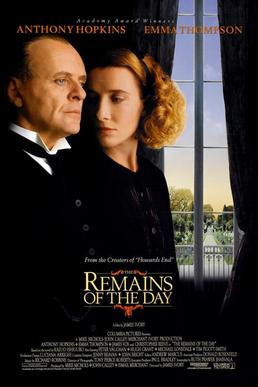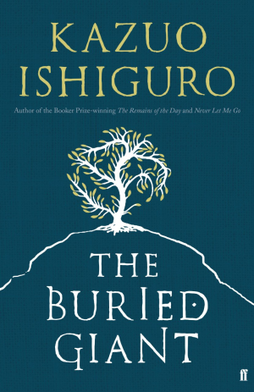
Sir Ahmed Salman Rushdie is an Indian-born British-American novelist. His work often combines magic realism with historical fiction and primarily deals with connections, disruptions, and migrations between Eastern and Western civilizations, typically set on the Indian subcontinent. Rushdie's second novel, Midnight's Children (1981), won the Booker Prize in 1981 and was deemed to be "the best novel of all winners" on two occasions, marking the 25th and the 40th anniversary of the prize.

Sir Kazuo Ishiguro is a Japanese-British novelist, screenwriter, musician, and short-story writer. He is one of the most critically acclaimed contemporary fiction authors writing in English, having been awarded the 2017 Nobel Prize in Literature. In its citation, the Swedish Academy described Ishiguro as a writer "who, in novels of great emotional force, has uncovered the abyss beneath our illusory sense of connection with the world".
Darlington is a large market town in County Durham, North East England.
The Cliveden set were an upper-class group of politically influential people active in the 1930s in the United Kingdom, prior to the Second World War. They were in the circle of Nancy Astor, Viscountess Astor, the first female Member of Parliament to take up her seat. The name comes from Cliveden, a stately home in Buckinghamshire that was Astor's country residence.

The English novel is an important part of English literature. This article mainly concerns novels, written in English, by novelists who were born or have spent a significant part of their lives in England, Scotland, Wales, or Northern Ireland. However, given the nature of the subject, this guideline has been applied with common sense, and reference is made to novels in other languages or novelists who are not primarily British, where appropriate.
This article contains information about the literary events and publications of 1989.
Earl of Darlington is a title that has been created twice, each time in the Peerage of Great Britain. Baroness von Kielmansegg, half-sister of King George I, was made countess of Darlington in 1722. This creation was for life only, and so the title expired on her death in 1725.

A butler is a person who works in a house serving and is a domestic worker in a large household. In great houses, the household is sometimes divided into departments with the butler in charge of the dining room, wine cellar, and pantry. Some also have charge of the entire parlour floor and housekeepers caring for the entire house and its appearance. A butler is usually male and in charge of male servants while a housekeeper is usually a woman and in charge of female servants. Traditionally, male servants were better paid and of higher status than female servants. The butler, as the senior male servant, has the highest servant status. He can also sometimes function as a chauffeur.

The Remains of the Day is a 1993 drama film adapted from the Booker Prize-winning 1989 novel of the same name by Kazuo Ishiguro. The film was directed by James Ivory, produced by Ismail Merchant, Mike Nichols, and John Calley and adapted by Ruth Prawer Jhabvala. It stars Anthony Hopkins as James Stevens and Emma Thompson as Miss Kenton, with James Fox, Christopher Reeve, Hugh Grant, Ben Chaplin, and Lena Headey in supporting roles.

Never Let Me Go is a 2005 science fiction novel by the British author Kazuo Ishiguro. It was shortlisted for the 2005 Man Booker Prize, for the 2006 Arthur C. Clarke Award and for the 2005 National Book Critics Circle Award. Time magazine named it the best novel of 2005 and included the novel in its "100 Best English-language novels published since 1923—the beginning of TIME". It also received an ALA Alex Award in 2006. A film adaptation directed by Mark Romanek was released in 2010; a Japanese television drama aired in 2016.

The Sea is a 2005 novel by John Banville. His fourteenth novel, it won the 2005 Booker Prize.

Money in the Bank is a novel by P. G. Wodehouse, first published in the United States on 9 January 1942 by Doubleday, Doran, New York, and in the United Kingdom on 27 May 1946 by Herbert Jenkins, London. UK publication was delayed while Wodehouse was under suspicion of collaboration during the Second World War. The book was published in English in Germany in August 1949 by Tauchnitz.

The Unconsoled is a novel by Kazuo Ishiguro, first published in 1995 by Faber and Faber, and winner of the Cheltenham Prize that year.

The Satanic Verses controversy, also known as the Rushdie Affair, was a controversy sparked by the 1988 publication of Salman Rushdie's novel The Satanic Verses. It centered on the novel's references to the Satanic Verses, and came to include a larger debate about censorship and religious violence. It included numerous killings, attempted killings, and bombings by perpetrators who supported Islam.
World Book Club is a radio programme on the BBC World Service. Each edition of the programme, which is broadcast on the first Saturday of the month with repeats into the following Monday, features a famous author discussing one of his or her books, often the most well-known one, with the public. Since the programme began in 2002 it has been presented by Harriett Gilbert.
Lucy-Anne Bradshaw is a British actress and singer, known for playing Cathy in the original production of Whistle Down the Wind by National Youth Music Theatre and Miss Kenton in the musical adaptation of The Remains of the Day. She also played Terry in Merrily We Roll Along directed by Michael Grandage at the Donmar Warehouse in December 2000, which won the 2001 Laurence Olivier Award for Best New Musical.
The Remains of the Day is a musical written by Alex Loveless, based on the novel of the same name by Kazuo Ishiguro. The original production, directed by Chris Loveless, premiered at the Union Theatre in London, playing from August 31, 2010 to September 25, 2010.

The Buried Giant is a fantasy novel by the Nobel Prize-winning British writer Kazuo Ishiguro, published in March 2015.

Klara and the Sun is the eighth novel by the British writer Kazuo Ishiguro, published on 2 March 2021. It is a dystopian science fiction story.

The 2017 Nobel Prize in Literature was awarded to the British novelist Kazuo Ishiguro "who, in novels of great emotional force, has uncovered the abyss beneath our illusory sense of connection with the world." The prize was announced by the Swedish Academy on 5 October 2017.













